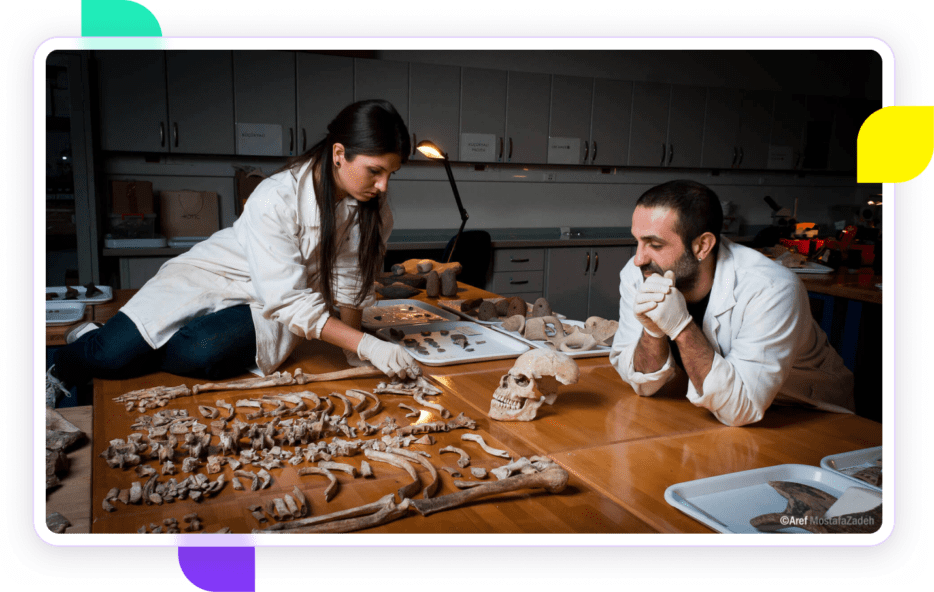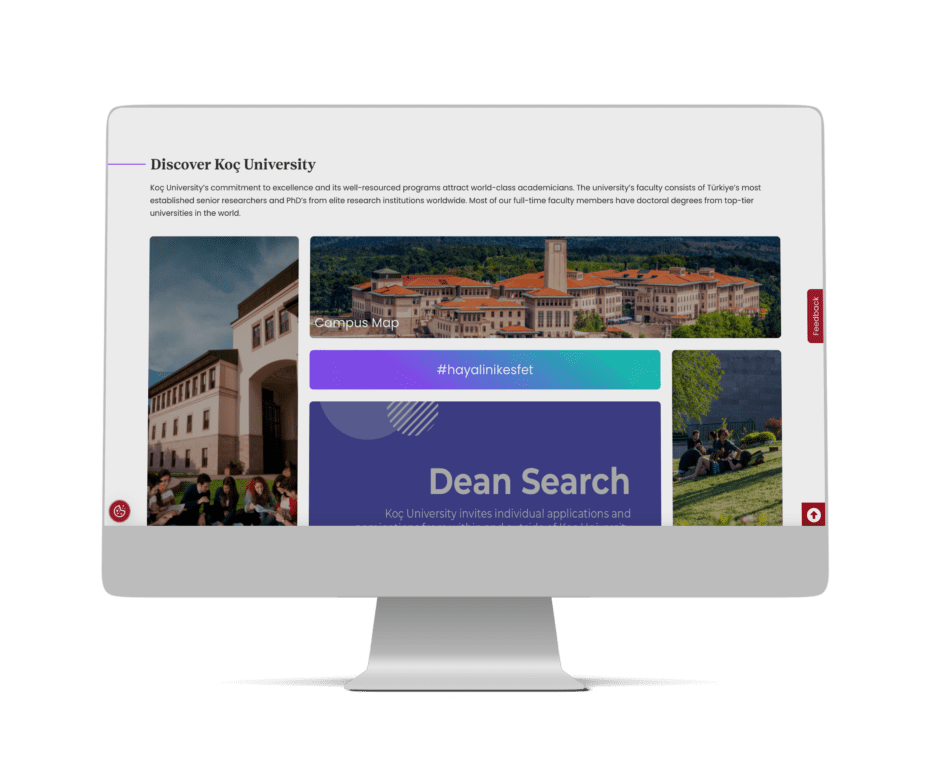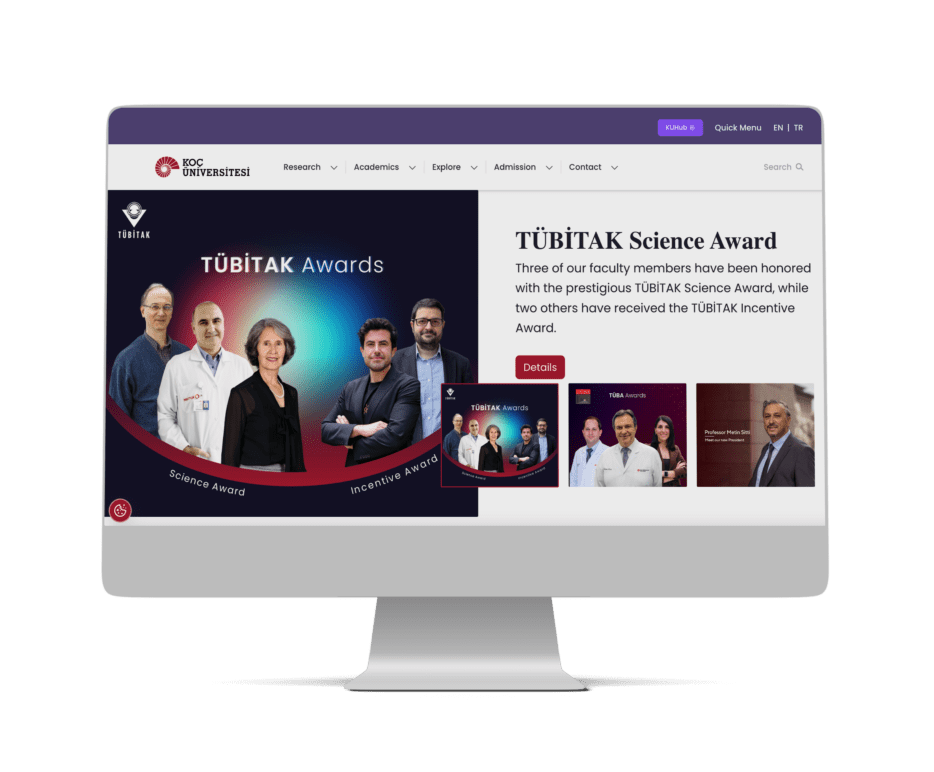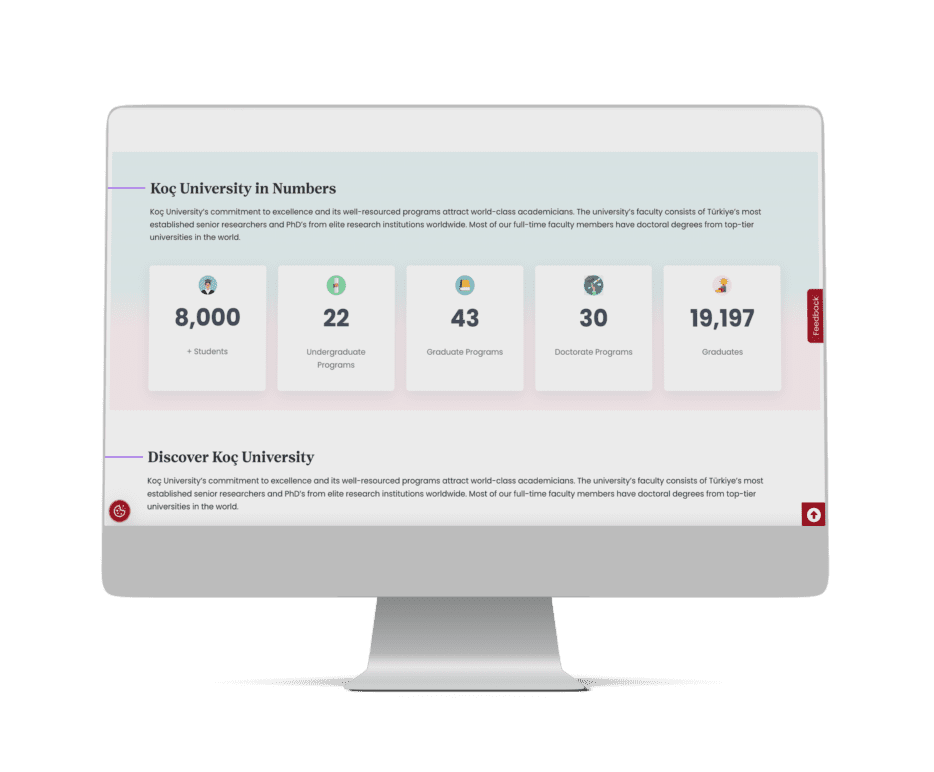Koç University and Tyk
Koç University is working with Tyk to centralise its API management and provide secure services to over 10,000 students, staff and administrative personnel.
Who is Koç University?
Koç University is a not-for-profit research university with a stellar reputation. Located in Istanbul, it is ranked as Türkiye’s top university.
Why did Koç University need an API gateway?
Universities faced plenty of challenges during the pandemic. They had to pivot swiftly and unexpectedly to new remote models for everything from teaching to pastoral care. At Koç University, the system infrastructure and network team was furiously spinning up apps and APIs to support these new methods of learning and engagement.
As the university’s internal and external API ecosystem grew, the team quickly realised it needed a gateway to help secure, manage and maintain its rapidly growing microservice and API infrastructure.
Why Tyk?
The system infrastructure and network team considered three or four API management providers before spending a couple of weeks doing a proof of concept with Kong. Then they heard about Tyk. Fatih Büyüktaş, Software Development and DevOps Group Manager at Koç University, recalls:
Implementing Tyk went smoothly from start to finish. Within a week, Koç University had the API management and security solution it needed, with an easy-to-use graphical user interface (GUI) for managing its 100 or so APIs.
How is Tyk working with Koç University?
Tyk sits in between Koç University’s APIs and its frontend apps. All app users – around 10,000 of them, including students, staff and administrators – connect through Tyk. The gateway makes security easier to manage and ensures authentication can’t be bypassed.
Much of the backend has been built using Mendix, a software development platform that enabled the university team to quickly spin up apps and API-based integrations during the pandemic. The resulting microservices architecture meets a range of needs, with services that span campus access, dormitory access, course evaluation, a mobile app used by students and faculty staff and the KU portal, again used by students, staff and admin personnel.
How is Koç University benefitting from using Tyk?
Four years ago, Koç University’s systems encompassed a range of legacy applications, suffering frequent internal security issues. Now, the university has a highly secure, modern architecture with Tyk in place to manage and secure its APIs. Software Development and DevOps Group Manager, Fatih Büyüktaş, observes:
“Tyk’s best feature, for me, is the user interface – because it was hard to manage and configure many APIs by editing files. Tyk’s graphical user interface made it very easy, so my team could manage those APIs easily – it’s a good user experience.”
Tyk has significantly reduced the time it takes the university to manage its services, enhancing productivity and reliability while bringing down costs. It is now easy for developers to integrate new APIs and apps, meaning the team is both more productive and happier. Büyüktaş comments:
“By using Tyk, we saved a lot on the operational costs. It was taking days or weeks to deploy an application because everything was manual. Tyk speeds up everything. We can deploy an application on the same day. That wasn’t possible before.”
Meliksah Karakas, Principal DevOps Engineer at Koç University, adds:
“Our security risks decreased after using Tyk. Tyk helps us to increase development productivity and to keep our APIs secure. We don’t lose control. When an API password/token needs to get updated, we know what was updated and where the API token was updated. Consolidation and central management increase development efficiency.”
What’s next for Koç University and Tyk?
Using Tyk means that Koç University is well positioned for future innovation. First on the list of upcoming changes is a project that’s already underway to move from Linux to Kubernetes, which will deliver smoother product upgrades and new API monitoring interfaces. The university’s system infrastructure and network team is working closely with Tyk’s engineers to implement this and is enjoying feeling well supported. The team has also used the Tyk community for support as well, finding it helpful to see others’ ideas and approaches when using Tyk.
At some point, the university also plans to create an open data portal with APIs for students. It’s a longer-term goal, but one that the team knows they can use Tyk to achieve; Tyk’s Developer Portal was one of the key product features that caught their attention right from the outset. It means that Tyk can support Koç University both now and in the future.






